Translations 677
The New Generations and the Gift of Ubiquity

The New Generations and the Gift of Ubiquity
Diversity of themes, ideological commitment, revolutionary fidelity and overflowing enthusiasm marked the 11th provincial stocktaking Congress of the UJC in Las Tunas
 By Juan Morales Agüero juan@juventudrebelde.cu
By Juan Morales Agüero juan@juventudrebelde.cu
February 18, 2020
Translated and edited by Walter Lippmann for CubaNews.
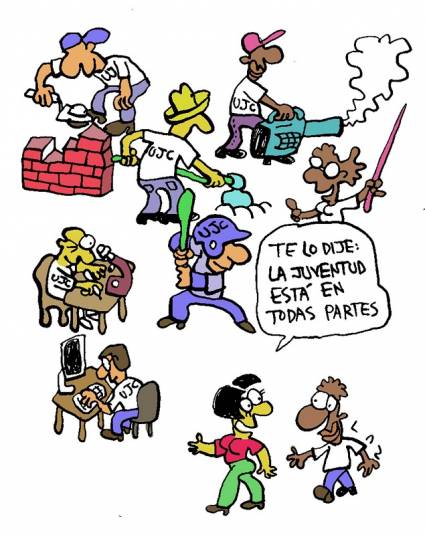 When one attends a youth meeting and listens to its participants discuss the varied and complex palette of issues that color contemporary Cuban society, one appreciates that the word future transcends mere rhetoric to become something accessible and concrete in what they believe in. “Your future, today,” says their motto.
When one attends a youth meeting and listens to its participants discuss the varied and complex palette of issues that color contemporary Cuban society, one appreciates that the word future transcends mere rhetoric to become something accessible and concrete in what they believe in. “Your future, today,” says their motto.
At the 11th provincial stocktaking assembly, the “Future of Cuba. Congress of the Union of Young Communists (UJC) of Las Tunas, he took the microphone and expressed his ideas for a good part of the social spectrum of the territory: students, teachers, peasants, workers, leaders, technicians, religious… It is that the young people of today seem to be in possession of the gift of ubiquity, that which favors being present everywhere at the same time.
This was made clear at the meeting held at the theater of the University of Medical Sciences of the territory, in the presence of José Ramón Machado Ventura, Second Secretary of the Central Committee of the Party; Susely Morfa González, First Secretary of the National Committee of the UJC, and other leaders and guests from different bodies.
Rafael Alberto, a cooperative member from the Jesús Menéndez municipality, revealed the “secret” of how he managed to make his base committee grow with six militants: by making them fall in love with the day-to-day work of the organization. He spoke of the link between the agricultural work on his farm and academic programs, and of Cubasolar’s contribution to taking advantage of renewable energy.
Julio César, a doctor from Majibacoa, spoke of the potential of a grassroots committee to make itself felt within its radius of action: they collaborate in the construction of an old people’s home, work in a productive area, organize circles of interest, and train in the fight against drugs.
Yuniela Comendador González, president of the Martí Youth Movement at the University of Las Tunas, told how they use social networks to disseminate the work of Cuba’s National Hero. So, they called for a selfies contest and uploaded the winning photos to their Twitter and Facebook profiles.
The role of the UJC in these times was the topic addressed by Eduardo Antonio Rondón Martínez, president of the FEU at the University of Medical Sciences. “We militants have the duty to leave prepared in the academic, but also in the political and ideological [sense] And to be willing to go where we are needed once we graduate. And to bring optimism to the communities”.
Elizabeth de la Cruz, from the Construction and Assembly Company, told how militants from her center – and others who are not yet militants – have made voluntary work with the victims one of their calling cards. Even the micro 8 in Santiago de Cuba were some to contribute to the construction of houses. And they also traveled to Havana when the tornado hit several of their communities. In Regla, they left the indelible mark of their solidarity.
Speaking in the discussion, Susely said that “among the admirable things about this assembly is that no comments are like any other, and that there is a correspondence between what they say and what you do every day. We must fight on all fronts. And today social networks are an important front. From that space we must also fight the enemy. And be alert to any sign of manipulation.
For his part, José Ramón Machado Ventura made clear the absolute confidence the Party has in the vanguard youth organization. This is all the more so at the present time when the process is underway. In his words he endorsed what the participants had said, encouraged them to continue and said: “We know we can count on you”.
The assembly constituted the delegation of the province for the final session of the 11th. At the same time, it elected the new Committee and Provincial Bureau of the UJC, at the head of which Anier Arnedo Sánchez was confirmed as the first secretary in the territory.
Diversifying IT Services and Making Them Exportable

Diversifying IT Services and Making Them Exportable
The Minister of Communications, during the balance sheet of the Informatics and Communications Business Group, highlighted the need to encourage human capital and undertake projects that increase income
by Yaditza del Sol González | internet@granma.cu
February 19, 2020
Translated and edited by Walter Lippmann for CubaNews.
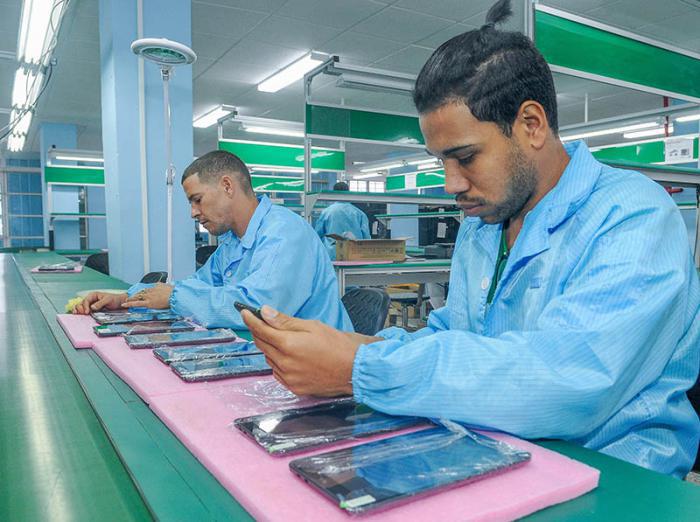
Cuba is strongly committed to the computerization of society, despite the intensification of the U.S. economic blockade. Currently, 63% of the country’s population is connected to the Internet through various channels. Photo: Granma Archive
Establishing alliances that promote productive linkages between different Cuban enterprises, implementing services to citizens, with priority given to government management and electronic commerce, as well as accelerating the safe development of technological infrastructure and encouraging research, development and innovation programs, are actions that respond to a single strategy: the implementation of the policy of computerization of society.
This was the opinion of the head of the Ministry of Communications, Jorge Luis Perdomo Di-Lella, who highlighted the need to encourage human capital and undertake projects that increase income. In this sense, he referred to the possibilities of exporting Cuban software, with a guaranteed quality, and in the deployment of proposals that are connected with foreign investment.
“The challenge is to diversify services, make them attractive, study which ones we can offer in the international market, all from the resources we have. In view of the economic situation of the country and the tightening of the U.S. economic blockade against Cuba, we are called upon to manage financing and seek foreign currency. [We must do this] either by using measures to make state-owned companies more flexible or by means of productive chains. This not only contributes to the monetary stability of the country but also to the very development of business.
During the assessment of the Informatics and Communications Business Group, the Minister called for a close follow-up of the e-government program. [This is] because once the present stage is over, “we are entering a more complex phase, where the provincial and local governments must guarantee the updating of the website’s contents and motivate the citizen to be at the center of the transformation of the management they carry out”.
With respect to cyber security, he said that there is a demand for digital certificates in the country and yet there is no consolidated marketable supply from computer and communications companies. The use of these certificates by the institutions allows us to increase the security codes and protect the exchange of information, an essential tool in a scenario where Cuban users are increasingly connected.
As Cuban President Miguel Díaz-Canel has mentioned on several occasions – the Minister emphasized – we must be able to make better use of the financial resources at our disposal to enhance the process of computerizing society.
IN FIGURES
By the end of 2019:
7.1 million Cubans were connected to the Internet, representing 63% of the country’s population
More than 143,000 homes were connected to the Nauta Hogar network
More than six million active lines are supported by the mobile phone network on the island, and 70% of these connections were made through smartphones
Source: Global Digital Report 2020 and Etecsa
Bahamian Charter Flights to Holguin

Bahamian Airline to Start Charter Flights to Holguin Connecting the United States and Cuba
March 11, 2020
Translated and edited by Walter Lippmann for CubaNews
 Charter flights will arrive at Frank Pais International Airport in Holguin, operated by Bahamasair, which will connect the U.S. with the interior of Cuba
Charter flights will arrive at Frank Pais International Airport in Holguin, operated by Bahamasair, which will connect the U.S. with the interior of Cuba
Holguín – With no regular flights and the imminent cessation of charters – both from the United States – the Frank País International Airport in the City of Parks will receive the Bahamasair airline, whose aircraft will arrive at this facility from the 19th of this month, with two weekly frequencies connecting Miami with the interior of the country.
The aircraft on this route will always make a stopover in the Bahamian capital, Nassau. They will fly here Thursday and Sunday, arriving at 12:30 p.m., returning to the southern Florida city an hour later, said Miguel Peña Peña, director of “Frank País.
“This is the first time that flights from Bahamasair are taken to our airport, although it has links with Havana for some years. Two days before their planes land here, something similar will happen in Santa Clara, Villa Clara (in central Cuba). To complete their charter flight, the national airline of the Bahamas will use Boeing 737-700 planes, which have 138 seats,” added Peña Peña.
Since last December, the U.S. government eliminated the access of regular U.S. airlines to cities in the interior of Cuba and next March 10 something similar will happen with the charter modality, thus hindering family ties and the normal flow of passengers between both countries, under the pretext of depriving Cuba of any kind of economic income.
At present, aircrafts from Canada, the United States, Panama, Haiti, Jamaica, the Netherlands, Germany, Italy and Russia are arriving at the “Frank País”. The largest number of travelers comes from Canada and there has been a rise in Russian visitors in the recent past.
>Since last December, the U.S. government eliminated the access of regular U.S. lines to cities in the interior of Cuba and next March 10 something similar will happen with the charter mode, thus hindering family ties and the normal flow of passengers between both countries, under the pretext of depriving Cuba of any kind of economic income.
At present, aircraft from Canada, the United States, Panama, Haiti, Jamaica, the Netherlands, Germany, Italy and Russia are arriving at the “Frank País”. The largest number of travelers comes from Canada and there has been a rise in Russian visitors in the recent past.
How to Make a Surgical Face Mask at Home

How to Make a Surgical Face Mask at Home
We also offer you some tips for its use
By Isairis Sosa Hernández isairis@juventudrebelde.cu
March 10, 2020
Translated and edited by Walter Lippmann for CubaNews.

One of its most common applications is when performing surgery, because the patient is exposed to any virus or contaminant. Author: Pinterest Published: 10/03/2020 | 05:34 pm
During this Monday’s special Round Table, where the measures adopted by Cuba to face the threat posed by the rapid and broad international expansion of the new coronavirus were reported, Cuban Prime Minister Manuel Marrero Cruz said that we can be concerned and concerned about the epidemic, but what we really have to do is prepare for an eventual entry of the virus into our country.
So, Así de Fácil wants to show you today how we can make a nasobuco or mask at home and offer you some advice on how to use it.
A piece of cloth and two pieces of elastic is what you will need to make this simple mask. Another model that we also propose, uses only fabric and does not use elastic, as they are usually worn in medical institutions. The images will show you every step.
As I always say, if you have children at home, encourage them to participate in the making of the mask so that they can enjoy how wonderful it is to create something with our own hands. See you next week to continue turning a simple idea into a great solution. Don’t miss out!







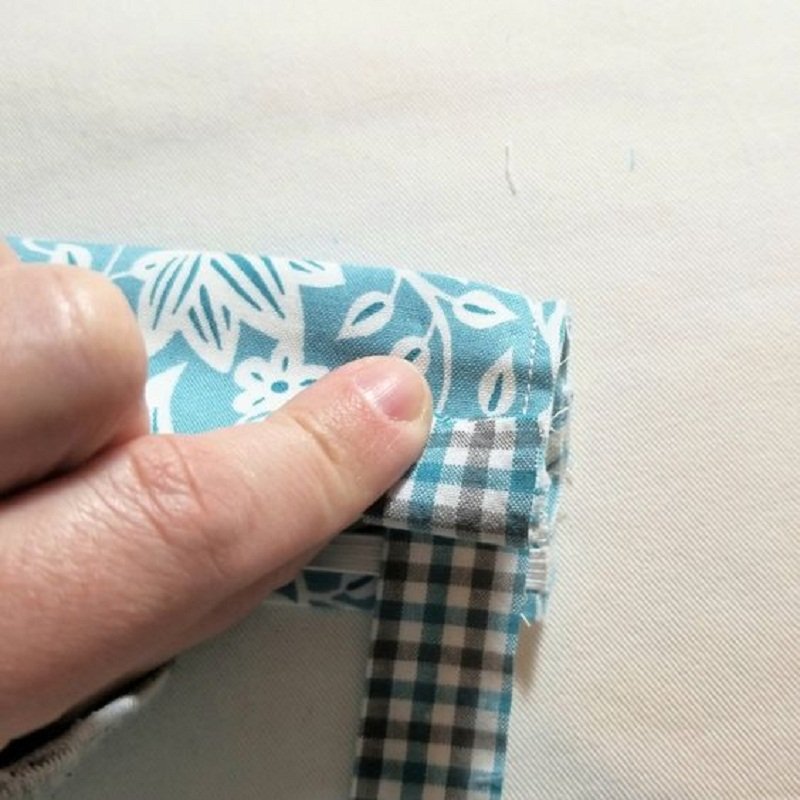




When to use a nasobuco or mask
If you are a healthy person, you only need to wear a mask if you care for someone suspected of carrying the virus.
Also wear a mask if you have a cough or sneeze.
Facemasks are only effective if combined with frequent hand washing.
Putting on and taking off a mask
Before you put on a mask, wash your hands thoroughly.
Cover your mouth and nose with the mask and make sure there are no gaps between your face and the mask.
Avoid touching the mask while you are wearing it.
To remove your mask: take it off from behind, without touching the front.
To reuse it, they recommend ironing it after washing it, as the virus cannot withstand high temperatures.
After handling a used mask, wash your hands immediately.
Malcolm and Fidel in Harlem
Malcolm and Fidel in Harlem
By Sylvia Weinstein (January 1993)
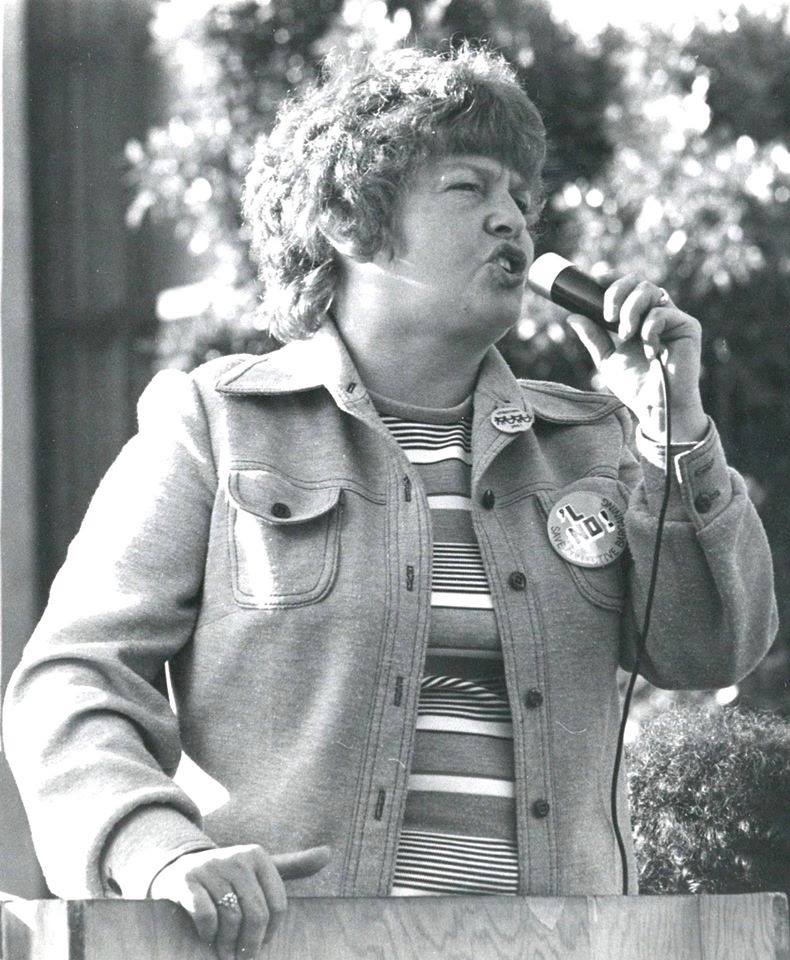 Photo by Walter Lippmann.
Photo by Walter Lippmann.
The Dec. 5, 1992, issue of the People’s Weekly World has a review by Tony Monteiro of the film “Malcolm X.” The review is unusual because it actually has some “nice” things to say about Malcolm X. Monteiro dropped the Stalinist newspaper’s former nonsense that Malcolm was a “racist-in-reverse.”
That’s what the Communist Party used to call him. That’s what the Stalinists called all Black nationalists, including members of the Nation of Islam.
Malcolm X joined the Nation of Islam because he was opposed to racism and white U.S. imperialism. He left the Nation because he was moving toward socialist ideas and because he wanted to get involved in the massive movements of Blacks who were fighting for their civil rights. Malcolm X wanted to bring that fight to the North.
If anyone wants to know what the world Stalinist movement thought about Malcolm X when he was alive, and even six years after his assassination, all you have to do is read long-time Communist Party leader and prominent historian Herbert Apthecker’s book, “Afro-American History—The Modern Era.”
It was written in 1971 and covers all of the major modern Black leaders up to Martin Luther King and Huey P. Newton. Out of 324 pages, there is not one word, not one whisper of Malcolm X.
Fidel’s visit to Harlem
The most amazing part of the article is that it gives Malcolm X credit for having gotten a room in Harlem’s Hotel Theresa for Fidel Castro in 1961. Although this story is intended to be complimentary to Malcolm, it is not based on fact.
I was there at the time and played an active part in the efforts of the Fair Play for Cuba Committee in New York City to establish deeper links between revolutionary Cuba and American Blacks.
In October 1961, Fidel Castro and the Cuban delegation had come to New York to address the United Nations. They first took up residence at a mid-Manhattan hotel that catered to delegations from poor countries.
But as soon as it became clear to the powers-that-be that the Cubans were not about to cave in to imperialist demands that they change their revolutionary ways, the news media began a campaign to slander the Cubans. The press issued a flood of stories about $100-dollar call girls visiting the Cuban hotel headquarters. They even featured stories that had the Cubans plucking chickens and cooking them in their hotel rooms.
Finally, Castro called for a halt. He threatened to go to sleep in Central Park rather than stay in such a hotel. He said that he had had plenty of experience sleeping in the mountains of the Sierra Maestra, and sleeping in the park would be more natural. Of course, this also made the headlines.
Fair Play for Cuba
We were then members of the Socialist Workers Party who had helped form the Fair Play for Cuba Committee. One of the committee’s national leaders was my friend Berta [Greene. Later Langston]. She proposed to the Cuban delegation to the United Nations that they move from the fancy white hotel they were being abused into a Black one in the heart of Harlem.
Berta told them that such a gesture of solidarity with African Americans would be greatly appreciated in Black America.
Berta contacted the Hotel Theresa and made arrangements to reserve a whole floor for the Cuban delegation. The Cubans accepted the arrangement immediately. The CIA and State Department went crazy! Suddenly Castro was being flooded with offers from many other hotels. There were even offers of free space—but Fidel said “no thanks.” He and the whole delegation then moved into the Theresa.
The Theresa was an historic hotel in the heart of Harlem. It was the first time that any United Nations delegation had ever stayed in Harlem. Fidel Castro—along with Juan Alameida, the head of the Cuban Armed Forces—would walk along the streets of Harlem, shaking hands, drinking orange juice at a hot-dog chain called “Nedicks,” and talking to the people in the streets of Harlem.
The press was silent about this news event. But they did print a photo of the Soviet Union’s limousine, which was about a block long, driving up to the Theresa. It was probably the Soviet delegates’ first time on 125th Street!
At the reception
It was the Fair Play for Cuba Committee that gave the reception for the Cubans at the Theresa on Oct. 2, 1961, not Malcolm X. My friend Berta arranged that, too.
That night, thousands of people lined the streets around the Hotel Theresa hoping to get a look at Fidel. We were on the 7th floor, and every time anyone went near the window, thousands of people on the ground would cheer.
We refused to allow any cops or reporters onto the floor. We had guards at every elevator and exit. At about nine o’clock I was told to go wait outside the Hotel for the caterer’s delivery truck. They were bringing refreshments and food. I was also told not to speak to any of the press.
As I went outside, the photo bulbs began to flash, and reporters started asking me what was going on upstairs. I just kept saying, “No comprendo.”
The next day, there it was in the headlines: “One hundred-dollar call girl at Castro reception says she ‘no comprende.’” I was astounded to be called a one-hundred-dollar call girl. I did not deserve it.
So the story in the People’s Weekly World that it was Malcolm X who arranged for the Cubans to go to the Hotel Theresa and who gave a reception for Fidel Castro and Che Guevara was untrue. I have no idea where it came from. In fact, neither Malcolm X nor Che Guevara attended the reception.
However, it was true that Malcolm X took the initiative to return the Cubans’ solidarity gesture. It was widely reported in the news media that Malcolm went to the Hotel Theresa and met with Fidel Castro. I do not know what went on, but Malcolm X was then a leader of the Nation of Islam, and it is highly unlikely that he was swayed towards socialism at that time.
However, the fact that Malcolm X did visit Fidel Castro at the Theresa had an enormous effect on the Black community of Harlem.
At any rate, Malcolm X does not need the Communist Party to make up fairy tales about him. They would do well to read Malcolm X speeches, review his real life—and acknowledge where they were wrong about Black nationalism and Malcolm X.
—January 1993
FIGHTBACK! A Collection of Socialist Essays
By Sylvia Weinstein
Socialist Viewpoint Publishing Association
ISBN: 0-9763570-0-3
360 pp.
To order your copy of FIGHTBACK!
Send a check for $25.00 plus $5.95 for shipping and handling to:
Socialist Viewpoint
60 29th Street #429
San Francisco, CA 94110
(415) 824-8730
Please be sure to include your name, address, city, state and zip code.
PHOTOGRAPH of Sylvia Weinstein taken 1990s, in San Francisco, California
The Mirages of Reality Television

The Mirages of Reality Television
By Julio Martínez Molina
February 5, 2020
A CubaNews translation. Edited by Walter Lippmann.
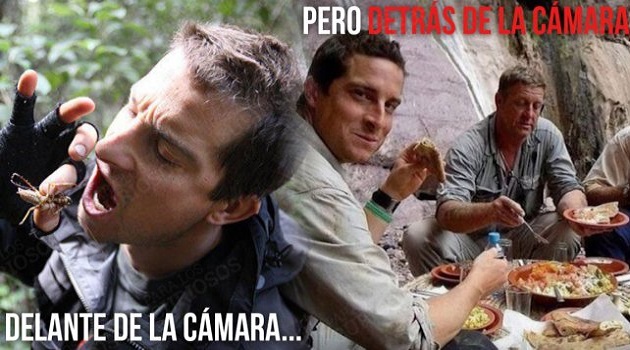
Reality TV is a hoax in its own right.
The format of reality favors performance (of all kinds, of course, with weight for the moral component), it is self-understood from the logic of simulacra and upholds the matrix line of the participant’s need to configure an image that presupposes the generation, or not, of empathy. It’s an image that, clearly, is worked on in accordance with the interests of the reality story and not in accordance with the legitimate identity profile of that person.
There cannot be much of the real in a television whose “truths” are simulated, something that can be validated in the context of fiction but is potentially antithetical to what would be sold as a record of the real.
There is nothing ethically contributing in a reality television conceived from the prism of the culture of human discard and in accordance with the hegemony of the patriarchal narrative about women seen as objects and not subjects. In a reality television that defends social Darwinism and ethnic exclusion, hostile to otherness, and tends to idealize the physical canon of the ideal body and the beautiful face according to Western taste in terms of a story of the humiliation of those who do not belong to such molds. In a reality television that clings to the morbid component in its constructions, given to base as a model of interaction the insubstantiality of a dialogue based on the puerile procedure of a child of a few years who began to understand words.
The medium reaches the exponential degradation of its discourse through its format. It’s incredible but at the same time understandable in cathartic times. And there’s the public self-exposure of the privacy of the individual in social networks. (It cannot be forgotten that the cultural phenomenon of marras emerges as a response from the media to the impetus of new technologies and the Internet and the subsequent television crisis, when the which supremacy in home entertainment is diluted). It is followed and applauded by a captive spectator and whose audiences mark the forefront of rating today on a planetary scale.
It’s been onty forty-seven years since An American Family (PBS, U.S. public television, 1973), the seminal bastion of the concept of reality show that was born in Europe in the second half of the nineties. It began with the first Big Brother broadcast in the Netherlands in 1999 and later extended to the entire world. This format is currently betting with greater force on human competitiveness: not understood as an incentive to an ameliorative impulse of the individual, but as the cancellation and moral liquidation of the other.
The orgasmic moment of reality feeds on the emotional agony of the contestant. The Cathodic Coliseum asks for the death of the gladiator, by lance or eaten by the lions. It demands it (death here, of course, is the moral collapse of the adversary or competitor). This is because the ideological construct of the format conditioned it to such an attitude, It extends from the iteration of an ideology that chose to divide the participants -by induction to those who receive it-, between inferior and superior beings.
The communicating vessels of such precepts are linked to fascism, the formulas of the extreme right raised in Europe during the same years of the emergence of the phenomenon of reality television and the splitting and dividing trumpet perception of the world.
As a consequence, we are faced with a communicative product of notoriously reactionary essence, at least in its confrontational aspect. It’s less explicit but also tangible in the realities of following celebrities, inside their mansions and a lifestyle of a luxury unthinkable for most people. They represent, therefore, a media backing to the ideology of inequality, one which is dangerously in force in a world that cries at its cleanest for its elimination.
In the same way, many of the reality television programs -especially the first variant mentioned above-, appeal to the most primary reflexes and instincts of the species. They use the inherent scopic drive of the human race to redirect its gaze towards ethically reprehensible territory. It aims to manipulate the emotional system of the less cautious viewers in a blatant way. And also of the participants themselves. Several of these have resorted to the last option of suicide, after suffering emotional breakdowns when they were violated by an industry built on the exploitation of “disposables.” when they were ignored by this theater that denigrates the sensibility and spirituality that ennobles and identifies human beings.

Estaticular, the Rare Cuban “Hybrid-Owner”

Estaticular, the Rare Cuban “Hybrid-Owner”
 By Ricardo Ronquillo ronquillo@juventudrebelde.cu
By Ricardo Ronquillo ronquillo@juventudrebelde.cu
President of the Union of Cuban Journalists. Granted Juan Gualberto Gómez Award. Former deputy editor and columnist of Juventud Rebelde.
March 3, 2020
Translated and edited by Walter Lippmann for CubaNews.
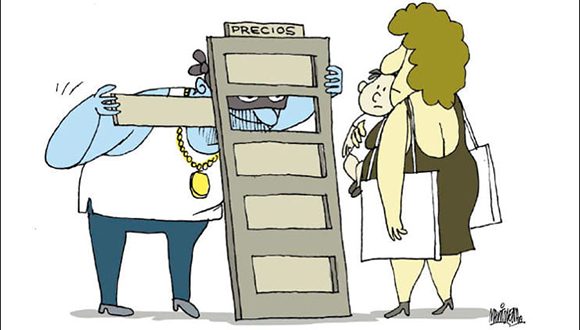
Caricature: MartIRENA
Imagine you arrive at a state-owned repair facility. You are instructed to go to the receptionist’s desk, who, in addition to taking your personal details, prepares a voucher that states in the accounting documents the type of care you will receive and the consequent cost. They then direct you to some of the repairmen present. The repairman will look hard at your appliance, the one that broke, of course, and then there will be a curious dialogue in which the repairman will tell you that for the type of damage to your appliance there are no parts in the unit… But – and this is always an interesting saving act – the repairman managed to get it, and he is ready to solve your peremptory problem.
Of course, doing so implies a “cost”, certainly much more expensive than if the “substitute” part were there in the workshop… From then on you will not end your “productive chain” within the establishment, by returning to pay for the service with the original partner who attended you, but in an intimate, very private agreement with the repairer, which will splash out to other internal confines…
Stories such as the one above gradually give shape in Cuba to a type of property that was not included in any economic or social guidelines, and therefore not in the Constitution. We are now celebrating the first year since its approval by a majority in a popular referendum. [But for this situation] there are no programmatic documents that aim at reconfiguring our socialist model.
The rationality and practical sense of the ordinary citizen has already made his baptismal act, with name included, to this curious variant of owner: “state” property [la propiedad “estaticular.] A direct and accurate friend defines it as a hybrid establishment, which in the papers are in the name of the State but, in the concrete one, a good part of the pieces and the dividends go, surreptitiously, to the pockets of its workers.
It is a secret and strange form of expropriation of public possession to which many are accustomed, by force of necessity, because otherwise, it would be very difficult for them to resolve the issues that entangle their existence.
In the recent balance sheet of the Ministry of Internal Commerce, some of the shards of this deformation jumped out. A large part of the products destined, for example, to gastronomic establishments end up being transferred to the private or cooperative sector, without fulfilling the purposes for which they were financed by the State. And the most painful thing is that this happens while the financial debts in these areas are extremely high, as much as the payments for losses to the nation’s pocket and pitiful corrupt chains.
These phenomena are more visible now, as our State tries to find its true limits. The body of that unavoidable institution for justice, freedom and sovereignty in Cuba, disproportionate for years, is giving way in size and functions.
One of the most important definitions of the so-called Updating is precisely the acceptance that the State is one thing as owner in the name of the nation and the people. Another is the various models in which property can be managed, something under discussion since the decision of the so-called “revolutionary offensive”, which turned state property into almost the entire national economic fabric, one of the “errors of idealism”, recognized by Fidel.
This definition allows for progress in the expansion of self-employment or small personal or family property-even the expected acceptance of the concept of private property, up to the scale of small and medium enterprises, the experimental opening of cooperatives in the non-agricultural sector, the handing over of idle land in usufruct, the leasing of state service premises, and the incipient purpose of transforming the socialist state enterprise, seen as the heart of the economy and of modernization.
Examples such as the one mentioned above require a more flexible and limited vision to the current circumstances, which favors the emergence of more socialized forms of property management. All of these should contribute to overcome the dragging of socialist experiences regarding the alienation of the workers from the productive processes.
Going to the causes of this fragility implies reviewing the role of the workers in the political conception of our State, for which it is necessary to cover more significant aspects, such as the issue of property and its forms of organization.
Let us not forget that the issue of property is so basic that the theorists of American neo-conservatism maintain that it is the true and crucial scenario of the decisive cultural war on a planetary scale. Not for nothing did its think tanks and its tight advertising machinery try to manufacture the ghost of a “socialist” Obama, and the same recipe now with the emerging Bernie Sanders.
Not just any trifling thing then, but our staple “hybrid-owner”.
Taken from Cubaperiodistas.
Active woman, Cuban woman
Active woman, Cuban woman (+Chart)
That day my grandmother took off her apron full of dignity; with total determination, she said words that had never been spoken at home, for the first time she spoke of equality…
By DUNIA TORRES GONZÁLEZ
March 3, 2020
Translated and edited by Walter Lippmann for CubaNews.
When I look around I see brave women. We have come into this century marked by the experience of those who came before us. And these, no doubt, set the bar very high. Some names we know: Mariana Grajales, Ana Betancourt, Gertrudis Gómez de Avellaneda, Luisa Pérez de Zambrana, Amalia Simoni, Haydée Santamaría, Melba Hernández, Celia Sánchez Manduley, Vilma Espín, Asela de los Santos… There are also the anonymous heroines, who did not neglect their responsibilities, who educated their children and at the same time fulfilled the tasks of their time. In a society where women did not have a voice, they exalted themselves and took their place.
Their stories are not only found in books, but also around us. I remember my grandmother’s stories very closely. She told us about the first years of the Revolution, a time when several mobilizations took place; hands needed to make the January 1st project a reality: literacy, agrarian reform, nationalizations, the construction of the Party in the different regions of the Island… Being a housewife was not at all unworthy. Everyone looked at the children, always neat and “careful”, however, I also wanted to be part of what was happening in Cuba.
We could already hear the stories of women who had been in the Sierra, who had taken up arms in their hands. It was the effervescent blood of those who, like her, could not sit still. She looked at her little daughter and always imagined a different future for her.
Grandmother came from a large family. Of her 11 siblings, only two were able to study, so it was up to her to look after the little ones in the house. Her current schooling level was fifth grade, but she did the math like no one else. She left her mother’s home at the age of 20, and her husband shared her revolutionary ideas. This did not change the fact that while he was traveling around the country with his responsibilities as a young militant, she remained at home taking care of the children.
This situation would soon change. She had made the decision to no longer be the woman in the apron. That day she went to the nearest agricultural cooperative and became a farmer. With total determination, she said words that had never been spoken at home. For the first time, she spoke of equality. Many commented that she was going crazy, that she was influenced by strange ideas, but I remember the light with which her eyes spoke of that moment without regret.
My mother grew up on a little ranch in the countryside, in a town called La Victoria, there were no amenities and sometimes she would go off to the country to help my grandmother. It was the early years of the Revolution and the news that new schools were being founded was spreading like wildfire. She was very happy the day that a group of students from her classroom gathered to go to the city to study. Finally, she did not have the necessary documentation for registration, so that trip did not take place. Even so, she had access to other options and ended up in an accounting course.
Like many women, she raised two children alone in times of resilience. Cuba was facing the special period and it was not a reason for her not to do her work duties. In my scant three years, she took me to her work every day. In the mornings I would wrap myself in a blanket and together we would go to the workshop to retrieve parts. I can still smell the dust from the entrance and exit cards in the long warehouse corridors that I had already learned by heart.
She was an example for my life. Together we would walk to the metings of the Federation of Cuban Women at night. Her activism was admirable. My birthday coincided with the celebration of the organization’s anniversary, on August 23, so the two motives were inevitably linked. She never said “no” to the tasks. Together we prepared polling stations, I was always the first pioneer guard, and I was excited to think about the day when I would turn 16 to exercise my right to vote.
I didn’t have brand name shoes, but they didn’t need to be either. My mother worked to ensure that each class had a new rucksack, uniform and shoes, and I could only look at her with admiring eyes. She always repeated to me: “Your task is to study, now you have all the opportunities”. She was always by my side at the pre-university scholarship, which was 42 km away from our house, and at the university, about 369 km away. She taught me how to make decisions, broaden my perspectives and strengthen my militant ideas.
Today I feel like a free woman. Not only because I chose it, but because the road was ready. The woman of my century has many names: a leader, a pilot, a taxi driver, a scientist, a farmer, a plumber, a teacher, a doctor, an engineer, a builder, an architect… In my country, destiny is not only decided by men. Now 53.22% of the deputies in Cuba are women. There are ten women in the Council of State. “The number of workers directly linked to science and technology was 89,214, and of these 47,326 were women,” according to the Cuban Statistical Yearbook 2019 January-December 2018.
The woman of this century walks beside the man, she does not subordinate herself to him. She enjoys total equality of opportunity and rights, as endorsed by the current Constitution of the Republic. They have access to paid work with equal pay for work of equal value and to social security. Cuban legislation protects her from maternity and illness. It enjoys free access to education at all levels. Her average life span is 80 years, one of the highest in the world.
Every day, Cuban women are becoming more indispensable on all fronts of economic, political and social life in the country and the community. She strives to enhance the role of the family in strengthening values, contributes to community hygiene, participates in health campaigns and faces any exceptional situation. 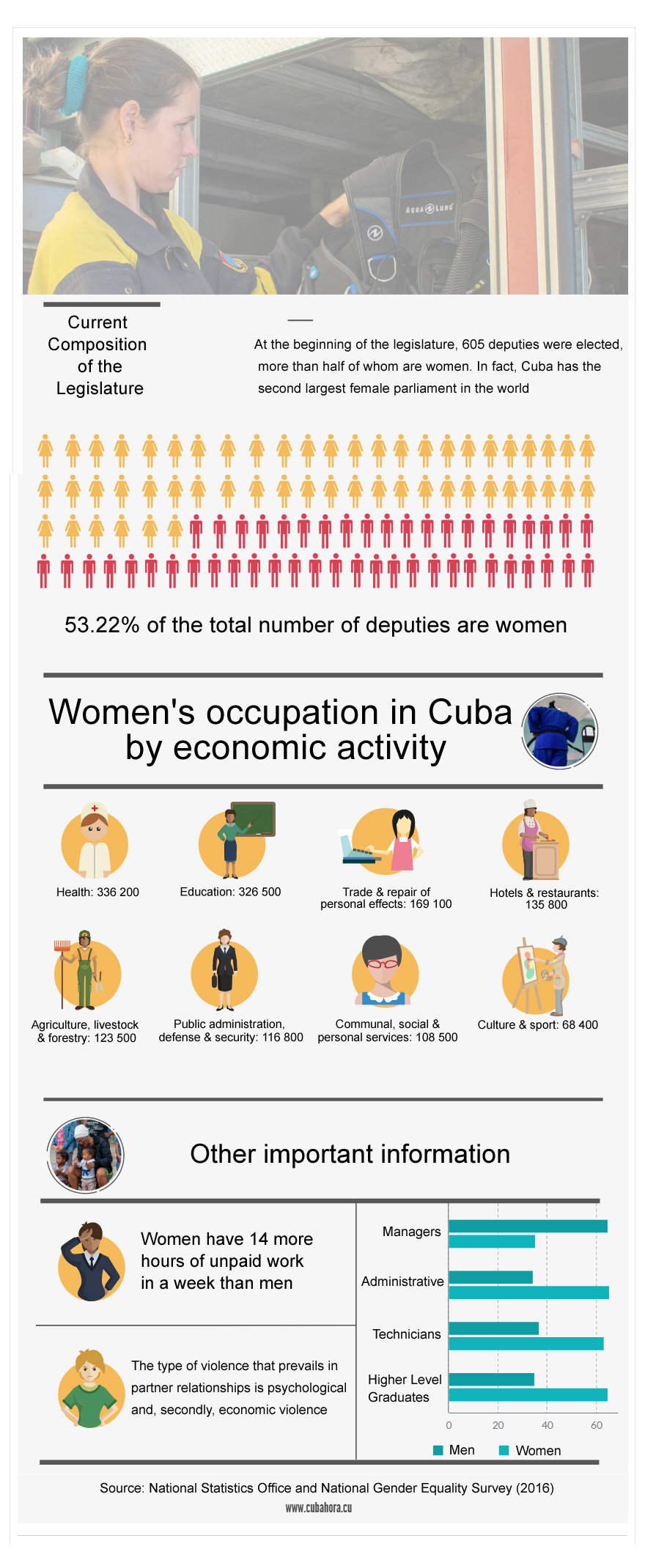
Coup Govt Seeks to Bankrupt State Airline

Coup Govt Seeks to Bankrupt Bolivian State Airline
March 3, 2020
Translated and edited by Walter Lippmann for CubaNews.

BoA workers declare a state of emergency. Photo: Radio Kausachun Coca.
Base workers of the Bolivian Aviation Company (BoA) declared a state of emergency after not being attended by the Ministry of Public Works, and asked to hold a meeting with President Jeanine Añez to learn about the situation of the state company.
The representative of the BoA collective, Francia Gonzales, expressed her fear and that of the other workers of the airline that the same pattern that occurred with the companies Lloyd Aéreo Boliviano (LAB) and Aerosur, which went bankrupt last decade, will be repeated.
“This is precisely the reason for this mobilization. Our company is gradually going into decline and this is the concern of all the workers. Many of them, former officials of LAB and Aerosur, are seeing the same steps, the same as what has happened with other companies, we are focused on the same path,” emphasized Gonzales.
This Tuesday, BoA’s president, Juan Carlos Ossio, denounced a loss of at least $50 million during the last four administrations of the Movement Towards Socialism (MAS).
“Boliviana de Aviación does not escape the logic that the country has been suffering systematically. MAS never tires of saying that it delivered an armored economy, and as we are seeing little by little, BoA is just another one of the badly managed companies that is showing a loss of more than 50 million dollars,” said Ossio.
The manager of the state-run company also considered that the rank and file workers are in a “plot”. In response to this statement, Gonzales said that the state airline workers “are not in a plot, but that the plot is coming from management” by cutting BoA’s schedule.
“At no time do we as workers intend to stop operations, that would be a plot. The plot we are seeing is from management making bad decisions in cutting routes, cutting catering and other types of services,” he added.
Claudia Mallón, a deputy from Unidad Demócrata (UD), denounced that the state-owned airline BoA failed to receive more than 79 million Bolivians (Bs) due to the reduction of frequencies as determined by the airline’s manager and the “complicit” silence of Public Works Minister Iván Arias.
Toiletries to Become Available

Toiletries are Going to Become Available
Authorities say that April will show some improvement in the supply of toiletries.
As of May and June the situation should be stable in the country.
——————————————————————————————–
by Yaditza del Sol González | internet@granma.cu
and Yudy Castro Morales | yudy@granma.cu
March 4, 2020 00:03:02
Translated and edited by Walter Lippmann for CubaNews.
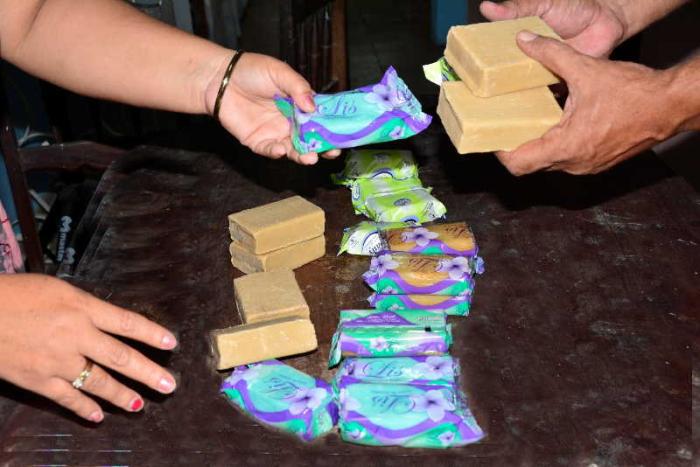
Toiletries, such as soap, toothpaste, liquid detergent and others sold in the retail network, should start to show greater availability in the market, even from March itself. Photo: Vicente Brito
Based on the current conditions of the national industry, the conciliation in terms of production and the assigned financing, the toiletries -such as soap, toothpaste, liquid detergent and others that are sold in the retail stores-must start to show a greater availability in the market, even from this month.
This was announced by Betsy Diaz Velazquez, head of Domestic Trade (Mincin). She explained that now in March, the levels of presence and assurance of these products will show better performance compared to previous weeks, which should go to stability once they begin to recover inventories.
In this regard, she added, April will also show some improvement, and from May and June the situation of sanitation should be stable in the country.
As to why these items are not marketed through the system of the ration book, perhaps as an emerging measure in the face of hoarding and re-sellers, the Minister explained that the toiletries can not be included in the basic family basket, as it would become a controlled product and, therefore, acquire rights.
If we do not have enough to put, for example, one soap per person, and ensure that it reaches the population according to the established cycles, then we can not assume control measures in the register of consumers, said Diaz Velazquez.
“What we can do, and do, is give the authorities of the territory the power to apply regulatory measures in the sale of products in high demand and with insufficient supply on the market. We are not talking about the administrator, but a power of governments and municipal administrations,” he said.
In addition, he insisted, there are certain items that can only market the units of MINCIN, such as Lis and Nacar soap, or liquid detergent Limtel. No one else is authorized, and anyone who incurs in this type of sales is acting illegally.
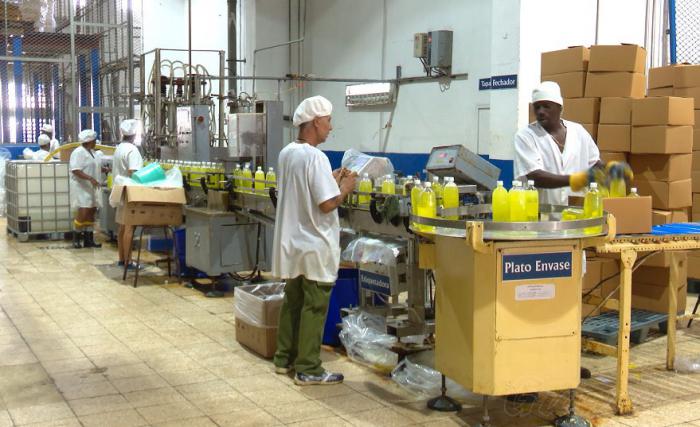
Since February, Suchel has had all the financing required to meet the planned levels of washing and toilet soap, liquid detergent and toothpaste. Photo: Granma Archive
AT THE SUCHEL COMPANY
Carlos Miguel Boggiano Sánchez, Managing Director of the company Suchel, agrees with the words of the head of MINCIN, telling Granma that “in May they will start to gradually improve deliveries, after achieving sustainability in their production and marketing”.
And more than goodwill or an optimistic attitude to support the announced stability, the company has, since February, “all the financing required to respond to the planned levels of laundry and toilet soap, liquid detergent and toothpaste”, products that showed sensitive deficits during 2019 and at the beginning of the year.
This guarantee, stressed Boggiano Sanchez, “marks the difference with respect to previous periods and ensures compliance with contracts for raw materials, as well as their arrival.
To get an idea of the recovery trend shown by the industry, it is appropriate to review the production indices for the first quarter of 2019 and those contemplated for the same stage in 2020.
During the first three months of the previous year, this entity delivered to MINCIN 7,806 tons of cleaning supplies, a figure that represented 16.1% of the 2019 plan.
However, at the end of March, the company must deliver 8296 tons, equivalent to 16,5 % of the forecast for 2020, a schedule that shows growth in the four families of products mentioned.
“From the raw material already available in the market, it is projected to exceed the production of the quarter by 380 tons of washing soap and 500 tons of liquid detergent”, said the CEO of Suchel.
It is precisely this last product, together with toothpaste, that has shown the greatest impact at the beginning of the year. It is estimated that it will recover, as of May, in the following order: detergent, although demand continues to exceed supply; laundry soap, toilet soap and toothpaste.
He said that, so far, the most significant deliveries are concentrated in the provinces of Havana, Matanzas, Villa Clara and Camagüey.
He stressed that as with the stable arrival of raw materials and the continuity of production, the industry, composed of six business units with a productive base, will put its capacities above 95% of use. This is the goal for which all the strategies are designed, from the availability of personnel to the organization of the required work shifts.
And it cannot leave out, from any productive analysis, as Boggiano Sanchez says, the impact of the hostile policy of economic, commercial and financial blockade of the US Government, whose tentacles press each sector of the economy.
The production of shavings, a fundamental raw material for making soap, requires imported oils and fats which, during 2019, in the words of the director, did not reach the country. This is, in addition to financial restrictions, due to the impossibility of tankers to touch Cuban ports, because of the pressures resulting from the unilateral and illegal U.S. sanctions against Cuba.
Of the 21,000 tons of shavings planned in 2019, barely 6,625 were obtained. This year no manufacture has been achieved, since the same constraints persist, not counting the increase in the price of the final product, which involves both the import of shavings and the import of fats and oils in different formats.
Although it might seem an excess, perhaps because of the reiterated nature of the subject, even in the production of soaps the economic blockade wags its tail.
IN DEVELOPMENT NEW LINE OF ECONOMIC PERFUMERY
By 2020, most of the demand of the mixed company Suchel Camacho s.a. is redirected to the network of stores in MINCIN, according to Caridad Estévez García, its sales manager.
In that sense, he said, the range of products is expanded with two new additions to the Daily line: cologne and deodorant. Other existing ones are consolidated, such as soap, children’s dental gel and [insect] repellent. In addition, there are also hair products such as professional dye and shampoo, conditioners and peroxides in large formats.
Likewise, he continued, “we are working on the development of new economic products of perfumery, cosmetics, and cleaning, which contribute to the substitution of imports, and guarantee the relation quality-price-opportunity”.
Together with the MINCIN and the governments of the territories, Suchel Camacho will participate, in the words of Estévez García, in the setting of personalized spaces, with adequate furniture for the positioning of such products.
In a first stage, the work will be done in stores located on Galiano and San Rafael streets in the capital, to be later extended to other establishments in the country.
Subscribe to Blog via Email
| M | T | W | T | F | S | S |
|---|---|---|---|---|---|---|
| 1 | ||||||
| 2 | 3 | 4 | 5 | 6 | 7 | 8 |
| 9 | 10 | 11 | 12 | 13 | 14 | 15 |
| 16 | 17 | 18 | 19 | 20 | 21 | 22 |
| 23 | 24 | 25 | 26 | 27 | 28 | |

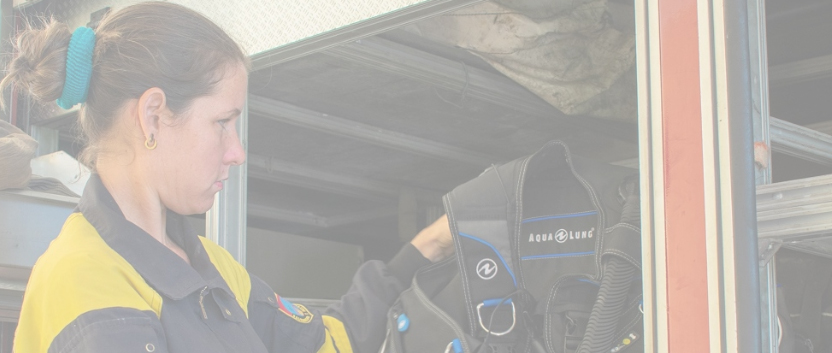

You must be logged in to post a comment.